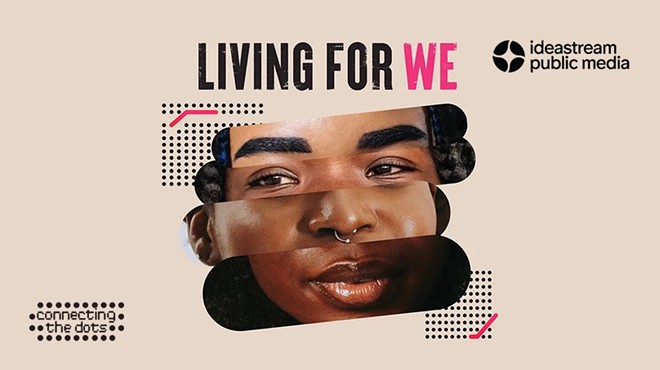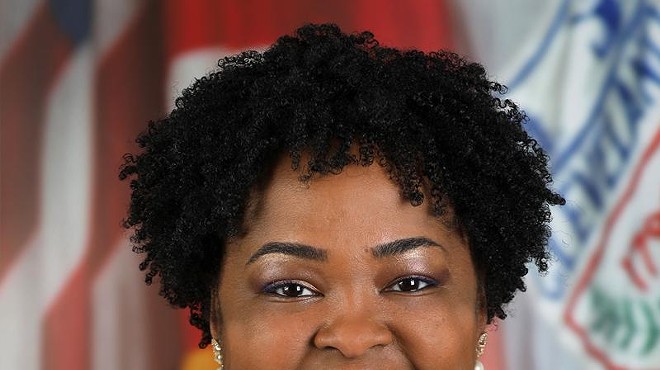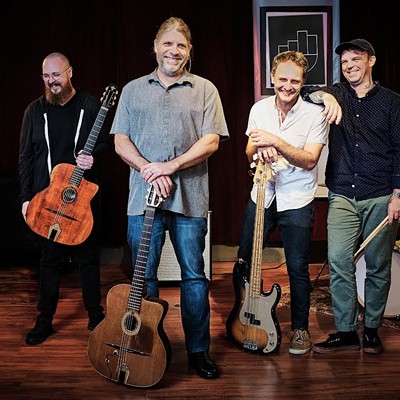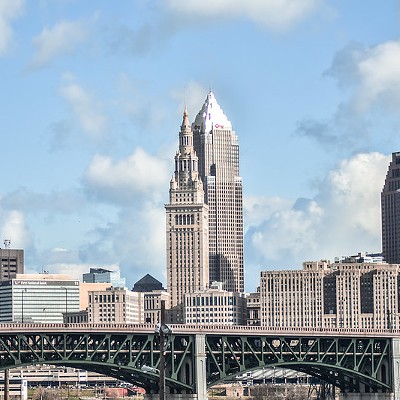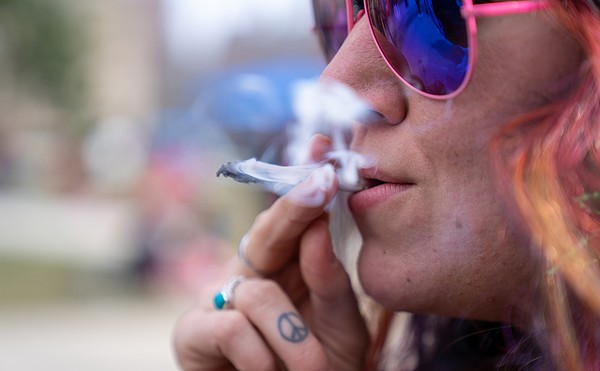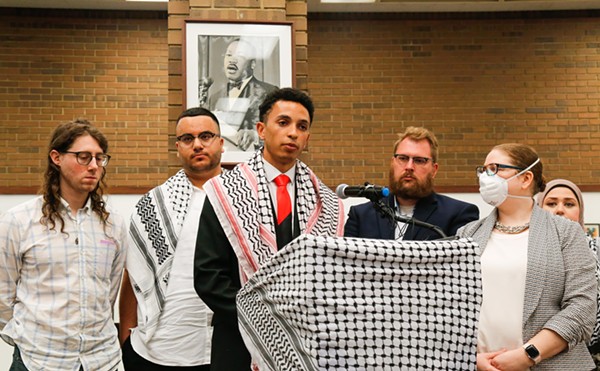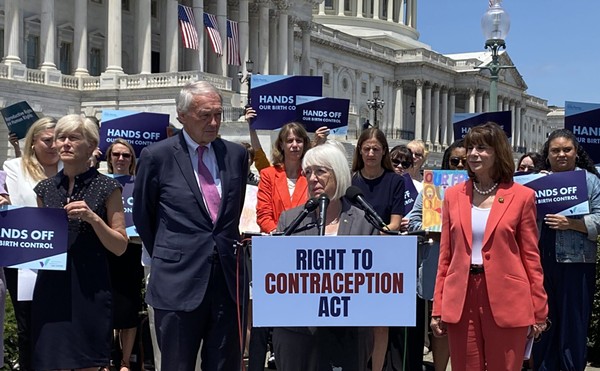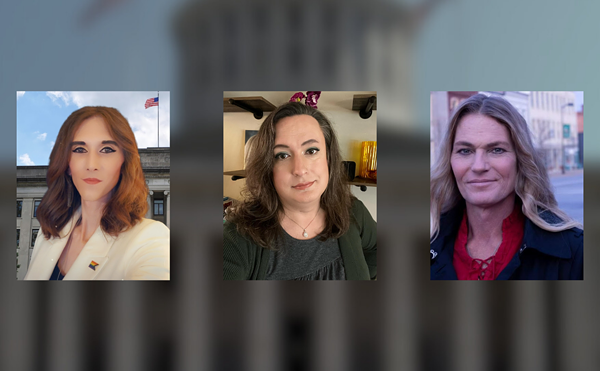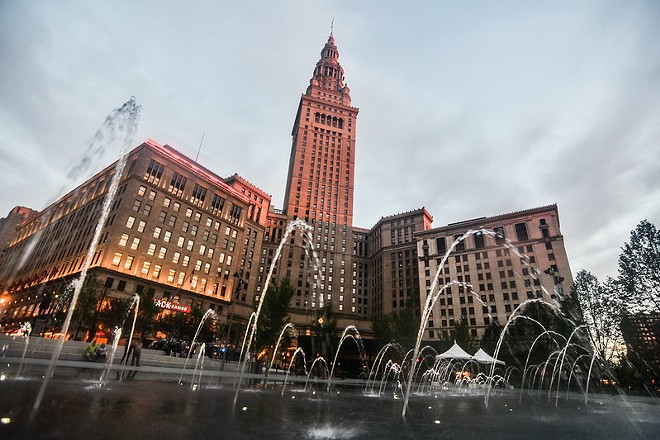
A rat steals your lunch but you get a good shot of the Terminal Tower for Instagram. No penalty.
Cleveland—which has a Black population of nearly 50 percent—was ranked dead last.
In response to the report, Enlightened Solutions, a Cleveland-based research and advocacy firm, initiated Project Noir, which surveyed 450 Black women in Cleveland aiming to amplify the voices of Black women and learn about their lived experiences in the city. And they've just completed the second round of questions.
“Something that we asked in the first survey was, ‘When you experienced [systemic exclusion] and when you were dealing with these barriers, what was your reaction?’” says Bethany Studenic, the managing director of Enlightened Solutions. “And we gave people all these different actions, you know: Did you file a claim? Did you talk to a lawyer? Did you rely on your community? Ninety-five percent of our participants blamed themselves. That was their first response.”
Chinenye Nkemere, Enlightened Solutions' director, and Studenic saw two themes in the survey responses: Black women felt that they were alone during these experiences they felt like they were not receiving the same amount of grace as their peers.
“I think women, particularly women of color, [are] conditioned to internalize this and to blame themselves,” says Studenic.
Bloomberg CityLab’s report analyzed cities with a Black female population of 100,000 or more. The research stemmed from a report released by the city of Pittsburgh, which was originally aimed at research around poverty. Even though the study was meant to gauge a better understanding of the experience of Black women, Studenic and Nkemere learned that researchers did not speak to any Black women during their research.
“The original study was actually around poverty,” says Nkemere. “It was around this idea of, ‘If we just eradicate classism and socioeconomic barriers, then race and gender won’t necessarily be a factor.’ [There’s] this idea that we can talk about Black women or pathologize Blackness or femininity or womanhood, but if we don’t pass a microphone to [Black women], then we’re actually doing ourselves a disservice.”
Giving the mic to Black women to tell our own stories through our own words and perspectives to highlight the challenges we face is necessary to build equity and combat systemic oppression.
The conversation continued in Cleveland with Ideastream’s podcast Living for We, as they talked to the Black women of Cleveland about their experiences in the workplace, school systems, healthcare and within the community to answer the question: Is Cleveland really the worst place for Black women.
The 11-episode podcast series, hosted by Marlene Harris-Taylor, examines the barriers Black women in Cleveland face. Throughout the series, we hear interviews from Black women professionals like Kent State psychology professor Dr. Angela Neal-Barnett, Black mothers like Samaria Rice and organizers like Dameyonna Willis, founder of Cleveland-based program QueenIAM. The podcast discusses the effects of police brutality, the experience Black women face in the workplace and healthcare system, relationships and education.
Through grassroots community work, research and organizing community conversations, Enlightened Solutions is working to make Cleveland a better and more inclusive place for Black women. Since the organization was founded in 2018, its focus has shifted each year to different things that are happening within the community.
This year was Project Noir’s second survey, with the initiative to learn if anything has changed for Black women in Cleveland since 2020 and focus on the universal experience of Black women now that its survey has gained traction. The goal was to get 1,000 survey responses from Black women across Northeast Ohio by April 30th.
“In 2021, we saw a lot of conversations around equity and inclusion around salary, pay equity, healthcare, declaring racism as a public health crisis. That was a big thing,” says Nkemere. “In 2022 to 2023, we’ve seen a lot of backlash happening first very slowly, and then all of a sudden now to critical race theory — diversity, equity and inclusion are seen as buzzwords for many individuals that are against progress.”
With the survey data from this year’s responses, Studenic and Nkemere plan to translate the information they receive into programs and spaces for the community where conversations can take place on how to move forward and take action to create a sustainable environment for the Black women of Cleveland and building partnerships within the community.
“Some of the things that we’re hearing the most requests for are spaces to talk about this issue and process everything,” says Studenic. “Places to come together and talk about what you’re going through and getting practical advice on how to navigate those systems.”
The aftermath of the survey responses is important, but it’s important to emphasize the resources that are already available to Black women and girls now, and the work being done to improve the situation. Cleveland, for example, launched its Commission on Black Women and Girls earlier this year, the first city to create such a body, to address disparities and improve the outcomes for Black women and girls.
“Many times, across our country, you’ll see commissions on women or commissions on children or commissions on poverty,” says Nkemere, “but we never actually see the intersection of race and gender.”
Subscribe to Cleveland Scene newsletters.
Follow us: Google News | NewsBreak | Reddit | Instagram | Facebook | Twitter

